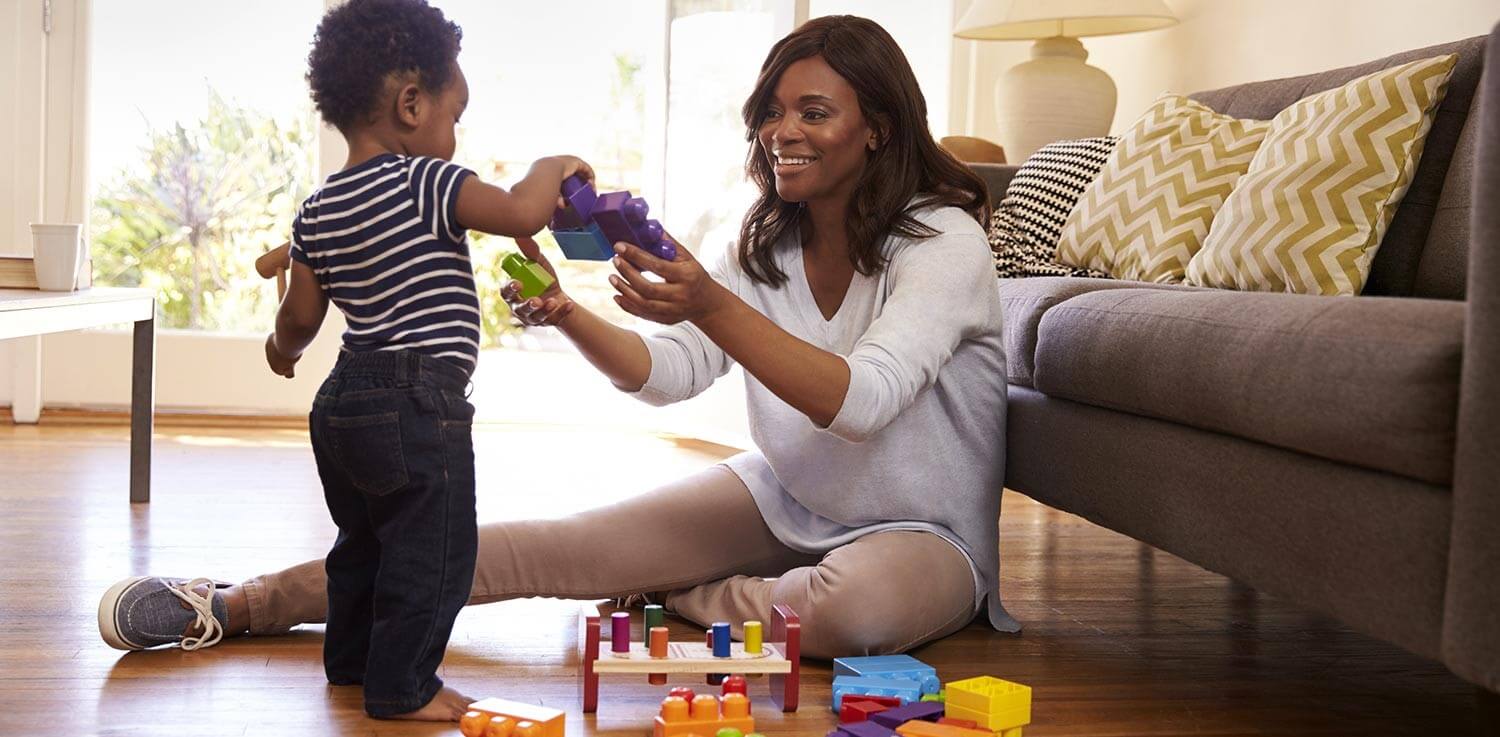Power your home
Enjoy price security with Safe Harbor fixed price energy plans

Power your business

Loading component...
Loading component...
Energy Resources

Electricity powers our lives, but it's not without potential dangers. By knowing the most common risks, and using a little common sense, you can prevent the most common accidents involving electricity and keep your home safe and secure – all year ‘round.
Whether you’re decking the halls for the holidays or installing new ceiling fans to cool those summer nights, keep these indoor safety tips top of mind. Some of them might even help you save money on your energy bill.
Changing lightbulbs and updating light fixtures are common home maintenance projects. Check lamps and fixtures when replacing bulbs to be sure new bulbs use the same or lower wattage. Be sure to hire a professional for any lighting projects outside your comfort zone.
1. Unplug lamps before changing lightbulbs, and screw new bulbs in tightly to prevent shorts or shocks.
2. If your light fixture is unlabeled, use a 25-watt bulb. The most common wattage is 60, but better safe than sorry.
3. Consider hiring an electrician to install new light fixtures, especially in homes with older wiring.
4. Always shut off the power at the main electrical panel before you remove and replace an existing fixture.
5. Never flip a light switch, touch an electric outlet, or plug in anything while your hands are wet.
Consider electrical outlets higher-risk areas. Avoid overloading outlets and over-using adapter and power strips.
6. Teach children basic safety rules for electrical outlets. Use plastic safety caps in unused outlets to protect younger children and infants.
7. Discolored plates and outlets that are warm to the touch are a warning sign of overload. Have them inspected by a licensed electrician.
8. Three-prong adapters (also called pigtail adapters or cheater plugs) are a shock risk. Hire a certified electrician to update your two-prong outlets to a ground-fault circuit interrupter.
9. Regularly tripping circuit breakers or blowing fuses are serious signs of overload. Immediately unplug anything that shorts an outlet, creates a spark, smokes, pops, or emits a burning or metallic smell. Have an electrician check the outlet and electrical panel.
Electrical cords are a convenient way to bring power to spaces without outlets. Chargers keep our mobile devices running. Both cords are both tripping hazards and fire risks when used improperly. If you use an electric cord or multiple power strips in your home, consider hiring an electrician to install additional outlets.
10. Before using a power cord check for cuts in the insulation, cracks, or fraying near the plug. Any cords or cables with exposed wires, or that feel hot to the touch, should be thrown away immediately.
11. When buying an extension cord, choose a three-prong cord approved by an independent testing lab.
12. Never yank a power cord from an outlet. This can damage the outlet and cause electrical shorts.
13. Do not nail or staple extension cords, which can damage the insulation.
14. Never modify or remove the grounding pin from a three-pronged cord to fit a two-prong outlet.
15. Never use multiple extension cords together or use power tools with an extension cord that exceeds 100 feet in length. This can cause the cords to overheat.
16. Store extension cords inside and off the ground to avoid accidental damage and prevent animals from chewing the insulation.
17. Buy replacement power cords and charging cables for phones, laptops and other electronics from the original manufacturer. Generic replacements may overheat and cause damage. If any part of a charger becomes hot to the touch when charging, throw it away.
Follow these electrical safety tips when using large appliances and electronics for cooking, cleaning, entertainment, and climate control.
18. Always follow the instructions for operating portable heaters, and keep them away from blankets, clothing, or drapes. Use portable heaters on a stable surface away from areas with high foot traffic.
19. Only use one heat-producing appliance (toaster, electric kettle, portable heater, or coffee maker) per outlet.
20. Always plug large appliances, such as refrigerators, ovens, washers, and dryers, directly into wall outlets. Never use extension cords or power strips with major appliances.
21. Be aware that larger appliances may require a higher voltage outlet. Call a licensed electrician to install an appropriate voltage outlet.
22. Always unplug appliances and electronics before cleaning or performing maintenance. Do not try to repair electrical equipment or appliances unless you are trained to do so.
23. Some electronics, like computers and gaming consoles, can overheat without appropriate ventilation. Regularly check and clean exhaust fans to help prevent overheating.
24. Keep electronics like radios, plug-in speakers, hair dryers, curling irons, or kitchen appliances away from running or standing water. Never use electronics or appliances when your hands are wet.
From landscaping to entertaining, electricity helps us do more outdoors. Working and playing around buried utility lines, high-voltage electrical infrastructure and changing weather requires some additional caution.
It wouldn’t seem like there are too many ways electricity safety affects everyday yard work, but consider yourself in the danger zone every time you tug an extension cord across the yard while trimming the grass.
25. Call 811 to schedule a professional who will inspect and flag any buried electrical and gas lines before you dig outdoors.
26. Wear rubber-soled shoes and gloves when working with electrical equipment. Be mindful of overhead power lines when using ladders or tools with long or extendable poles.
27. Keep cords away from blades and sharp edges when using electric hedgers or cutting tools to prevent shock and injury.
28. Be sure garage and outdoor outlets have ground-fault circuit interrupters (GFCIs). Install weather-proof boxes over outlets exposed to rain or moisture.
29. Store electric tools indoors to prevent weather damage.
30. Take care when using outdoor electric equipment near water. Do not use electrical equipment in rain or snow.
Ever have that moment when you notice the miles and miles of powerlines strung through your neighborhood and up to your house? That’s our energy infrastructure. Like everything else, it can present a danger, like when a storm knocks a wire down. Here’s what to remember.
31. Always stay clear of overhead power lines, substations, and pad-mounted transformers. Keep in mind that electricity can “jump” up to 10 feet from its source.
32. Immediately report damaged equipment or downed power lines to your local utility.
33. Assume any downed lines are a serious electrical hazard.
34. If your car comes into contact with a downed power line, do not exit or touch the vehicle exterior. Contact the fire department immediately for help.
35. Before planting a tree near overhead power lines, research its growing patterns. Select a variety that will not interfere with the power lines as it grows.
36. Hire a professional to cut any tree limbs near overhead power lines.
When the weather’s warm, we all want to get outside. Make sure you keep yourself safe, as well.
37. Make sure you purchase outdoor lighting that is designated for outdoor use. Keep light strands away from pools, sprinklers, and standing water.
38. Ensure large outdoor appliances such as heaters and hot tubs are plugged into outlets with the appropriate voltage.
39. Teach kids to drop and walk away from a kite that gets caught in a power line.
40. Never climb the fence around a substation to retrieve a lost ball or frisbee.
41. Never use electrical cords as jump ropes, tug of war, or climbing.
Throughout the year, there are a handful of holidays that we love to light up – and light up big. The average house displays between 500 and 1,000 lights at Christmas. The world record is 700,000. Whatever you’re celebrating whenever you’re celebrating it, make sure you keep these safety tips top of but mind.
42. Check your lights. Broken or missing bulbs can cause a shock or cut a finger. Replace bulbs before hanging them on the house or decorating the tree.
43. Unplug light strings before changing bulbs.
44. Choose a wooden ladder rather than a metal one. Metal conducts electricity.
45. Use outdoor lights outdoors and indoor lights indoors. It’s straightforward, but many accidents occur when the wrong type is used. And go an extra step and make sure your outdoor lights are weatherproof.
46. Any extension cord you use outdoors should be approved for outdoor use, too. And the more lights you use, make sure your extension cord can manage the power.
47. Use a light timer or at the least make sure to set an alarm to remind yourself to turn off the Christmas tree lights before going to bed or leaving the home.
48. Make sure you purchase outdoor lighting that is designated for outdoor use. Keep light strands away from pools, sprinklers, and standing water.
49. Ensure large outdoor appliances such as heaters and hot tubs are plugged into outlets with the appropriate voltage.
50. Teach kids to drop and walk away from a kite that gets caught in a power line.
51. Never climb the fence around a substation to retrieve a lost ball or frisbee.
52. Never use electrical cords as jump ropes, tug of war, or climbing.
53. Keep cords out of high-traffic areas like sidewalks. Beyond creating an electrical hazard, loose cords could trip and injure trick or treaters.
54. Avoid nailing or stapling lights to your home or decorations. Avoid attaching electrical cords to metal specifically.
55. Consider using battery operated tea lights in pumpkins instead of candles to eliminate the fire hazard.
56. Use caution if stringing lights around doors. Frays can occur if the wires are caught between the door and the frame.
57. Whenever possible, keep light strands and power cords off the ground.
58. Make sure nothing is obstructing the fan so the air flows properly and the fan isn’t overworked and doesn’t overheat.
59. Read the manufacturer’s instructions for your inflatable decorations to know how long you can run the inflatables and at what temperatures to help the motor last as long as possible.
60. Regularly check the motor to ensure twigs, rocks, and debris haven’t jammed the motor.
Five tips for powering your new home that could help you save